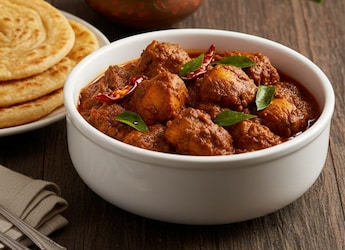Fats are important for cooking, but which one to choose for better health as well as taste? The debate between butter and vegetable oil has simmered for years. As two kitchen staples with distinct characteristics, both bring unique flavours and textures to our favourite dishes. While butter adds its velvety texture and salty goodness, oil gives the food its sheen and richness. However, both of these fats have come under the scanner for being unhealthy options. The reason? Fats, of course. Consultant nutritionist Rupali Datta tells us, "Recommendations for saturated fats are less than 7% of total calories." Some think butter is bad for cholesterol, and others think cooking oil adds unhealthy fats without flavour. But how bad are these fats for us? And which remains better for your recipe: butter or oil? Let's find out.
Also Read: Ghee Vs Mustard Oil - Which Is Better? Nutritionist Reveals Best Cooking Practices
What Is Butter Made Of?
Butter, a beloved kitchen ingredient, is a dairy product made from churning cream. It's a source of saturated fats, essential for hormone production and absorption of fat-soluble vitamins. However, excessive consumption may contribute to high cholesterol. The debate around butter centres on its saturated fat content, with some studies like Harvard Public Health suggesting a link to heart disease.
What Exactly Is Vegetable Oil?
Vegetable oil, a plant-based alternative, is extracted from seeds, nuts, or fruits. It's praised for its unsaturated fats, promoting heart health and lowering bad cholesterol levels. However, some vegetable oils may undergo processing methods that reduce nutritional value. Research suggests that high consumption of certain vegetable oils rich in omega-6 fatty acids might contribute to inflammation.
Also Read: Is Ghee Better Than Olive Oil For Indian Cooking? Nutritionist Explains
Butter and oil are used extensively in cooking.
Photo Credit: iStock
Is It Better To Use Oil or Butter?
For Cooking:
When it comes to cooking, both butter and vegetable oil have their merits. Butter adds a rich flavour to sauteed dishes and imparts a golden crust to pan-seared meats. However, its lower smoke point makes it less suitable for high-temperature cooking. Vegetable oil, with its higher smoke point, is a winner for stir-frying and deep-frying. Health-wise, experts like the American Heart Association suggest a balance, opting for vegetable oils with higher unsaturated fats for regular cooking to maintain heart health.
For Baking:
During baking, the choice between butter and vegetable oil significantly impacts the texture and taste of your treats. Butter lends a rich, creamy flavour to cookies and cakes, creating a desirable crumbly texture. On the other hand, vegetable oil introduces moisture, producing a lighter and fluffier end product. Health-conscious bakers often experiment with substitutes like applesauce or yogurt for a balance between flavour and nutritional value. However, chefs often advise a combination of both for a perfect harmony of flavour and texture.
For Non-Heat Recipes:
Beyond the stove and oven, both butter and vegetable oil find their place in non-cooking recipes. In salad dressings or cold dishes, vegetable oil's lightness allows it to blend seamlessly. Butter, when softened, enhances the texture of spreads and icings. For health-conscious choices, chefs, nutritionists, and even the Mayo Clinic recommend plant-based oils instead of butter as a versatile and heart-healthy option in non-cooking recipes. It adds a pleasant depth of flavour without compromising nutritional benefits.
Butter Vs Oil: The Winner?
In the butter vs. vegetable oil dilemma, there's no one-size-fits-all answer. "Butter is a saturated fat source, vegetable oils are rich in poly and mono saturated fat. Butter is a healthy choice in combination with vegetable oils for growing children. For adults, nuts, seeds and non-veg food also add saturated fats, so it is important to be judicious about using butter or oil." Both have their roles, offering distinct flavours, textures, and nutritional profiles. The key lies in moderation, choosing based on the cooking method, and considering individual health goals.
(This content including advice provides generic information only. It is in no way a substitute for qualified medical opinion. Always consult a specialist or your own doctor for more information. NDTV does not claim responsibility for this information.)
